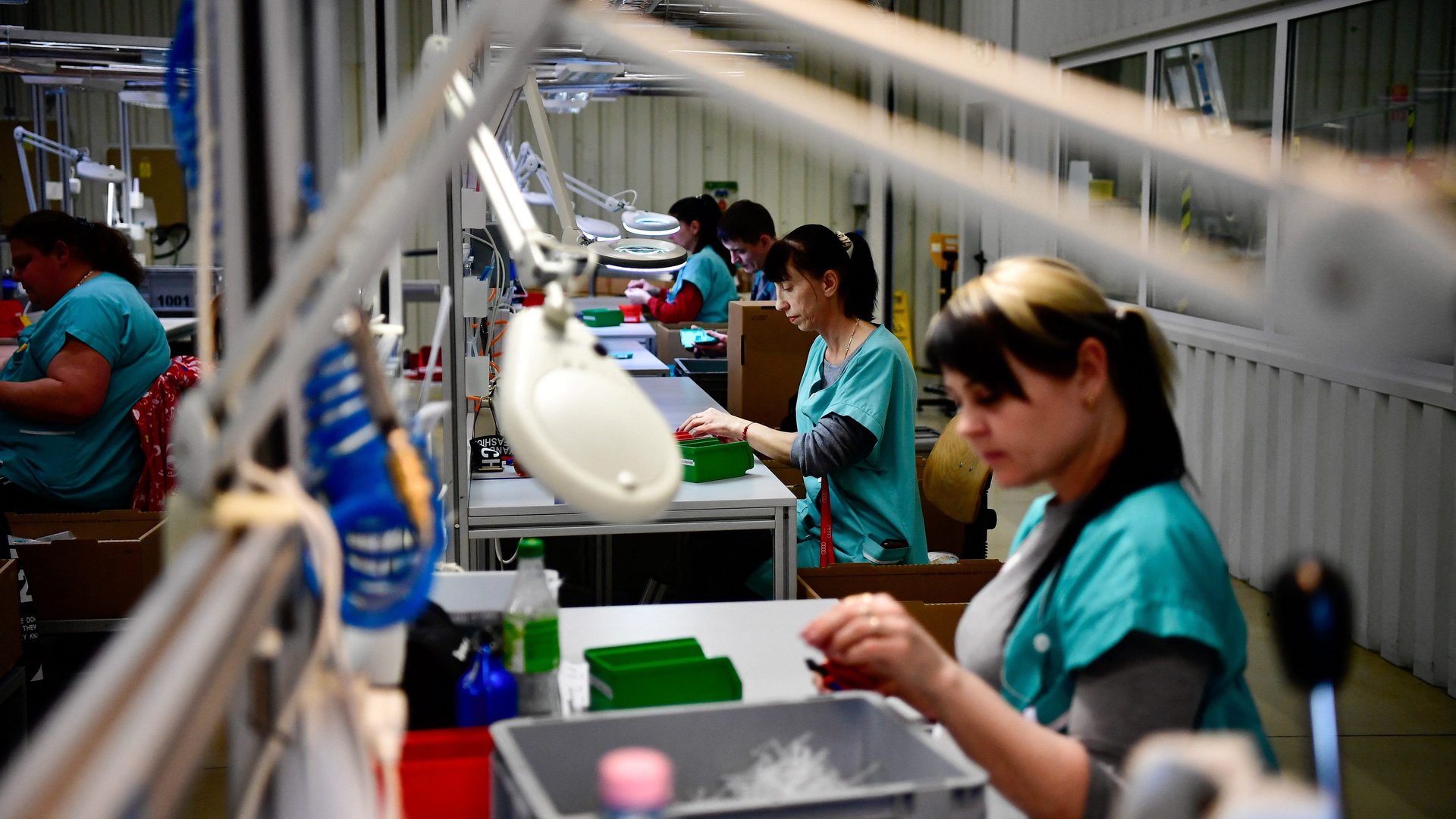With the ability to work, Ukrainian refugees may remain in EU countries for the long haul
More than 2 million people have fled Ukraine in less than two weeks since Russia invaded the country. In one of the largest and fastest-moving waves of war refugees Europe has seen since World War II, people have poured into neighboring countries like Poland, Hungary, and Romania, while a few have traveled as far as Spain and Israel.


More than 2 million people have fled Ukraine in less than two weeks since Russia invaded the country. In one of the largest and fastest-moving waves of war refugees Europe has seen since World War II, people have poured into neighboring countries like Poland, Hungary, and Romania, while a few have traveled as far as Spain and Israel.
These forced migrants have been met with an uncharacteristically warm reception. Across European Union member states, ordinary citizens people have volunteered to provide humanitarian aid and transportation and opened up their homes for temporary shelter.
Ukrainian citizens had some advantages compared to previous refugees, especially those from the Middle East. European nations were primed to offer aid to refugees from another liberal democracy struggling to fend off war with Russia, a country seen as a common threat by its neighbors. The EU’s freedom of movement was another. Ukrainians already had the right to enter EU countries without a visa, but new special protections will allow them to stay for longer and potentially build lives in new countries.
On March 4, EU leaders enacted the Temporary Protection Directive, a never-before-used law that offers migrants the ability to stay in EU nations for at least one year (and up to three years) without having to apply for asylum or another form of residency. Under these protections, Ukrainian refugees will have access to labor markets, education systems, healthcare, and housing in member EU nations who choose to participate.
It’s a marked departure from previous European migration policy, and one that has the potential to set off a massive long-term population shift in the region that could ultimately benefit European economies.
Establishing a right to work for refugees
As many have been quick to point out, Europe’s reception of Ukrainian refugees stands in stark contrast with its attitudes towards millions of people from Syria, Afghanistan, and Iraq who arrived in Europe during the refugee crises of 2015-16. Even though countries like Germany stepped up to accept 1.2 million refugees, they weren’t offered the same broad, flexible set of supports to make a life in the country once they arrived.
Crucially, they were not given broad access to work permits or any other way to make a living while their asylum cases were being processed. As a result, many of these migrants remained isolated and impoverished in their new countries. At the end of 2018, only 35% (pdf) of Syrian refugees in Germany were fully employed.
The ability to work and earn money makes all the difference to a new immigrant’s success in a new country, says Jasmijn Slootjes, a senior policy analyst at Migration Policy Institute Europe. “From day one, being allowed to work makes a huge difference in a person’s opportunities for integration, and also lessens the pressure on the social welfare system.”
The influx of new workers from Ukraine is likely to be a boon to the economies of places like Poland and Germany, which have both experienced labor shortages in recent years and have competed for migrant workers from Ukraine. In June of 2021, Poland had the lowest unemployment rate in the EU at just 3%, and has counted on the labor of more than 1 million Ukrainians. In March 2020, Germany introduced new legislation to open up its labor market to non-EU citizens making it easier for Ukrainians to work there.
But EU countries need to prepare for the possibility that Ukrainians will stay for years, not months, says Slootjes. The temporary protection directive can be renewed for up to three years, and it’s possible that people will seek permanent residency beyond that, especially in countries where there is already a strong Ukrainian diaspora. “These people will be here at least a year, maybe longer, and they will have access to the labor market,” she says. As people settle into new countries, they will need to learn the language and local customs, learn to get around, and may even face backlash from citizens who come to resent their presence. It will be the responsibility of EU leaders who are welcoming Ukrainians in to make sure their integration is as smooth as possible. “Facilitating this access will require more support and more strategic thinking,” says Slootjes.